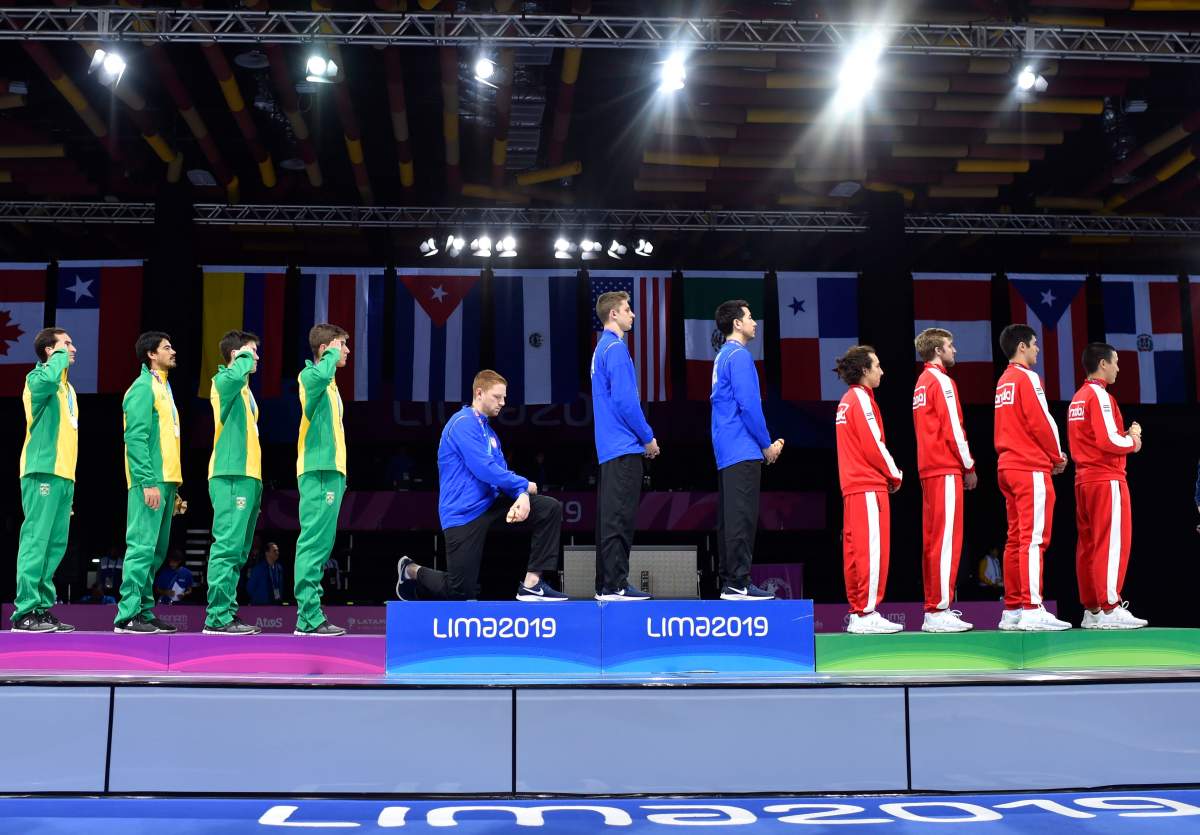LIMA, Peru — Two Americans used their medal-winning moments at the Pan American Games to draw attention to social issues back home that they feel are spiralling out of control.

During their medals ceremonies at the multi-sport event in Lima, fencer Race Imboden took a knee and hammer thrower Gwen Berry raised her fist. Both athletes could represent the U.S. less than a year from now at the Tokyo Olympics, where similar protests would be seen by a much wider audience.
“Racism, gun control, mistreatment of immigrants, and a president who spreads hate are at the top of a long list” of America’s problems, Imboden said in a tweet sent after his team’s foil medals ceremony. “I chose to sacrifice my moment today at the top of the podium to call attention to issues that I believe need to be addressed.
“I encourage others to please use your platforms for empowerment and change.”

Get daily National news
Berry raised her fist as America’s national anthem was played to honour her win in the hammer throw. She called out injustice in America “and a president who’s making it worse.”
“It’s too important to not say something,” Berry told USA Today. “Something has to be said. If nothing is said, nothing will be done and nothing will be fixed and nothing will be changed.”
READ MORE: Gold medals and records at Pan Am Games for Canadians Lalonde and Arop
The history of high-profile protests at the Olympics dates to the 1968 Games in Mexico City, when sprinters Tommie Smith and John Carlos raised their fists during the medals ceremony for the 200-metre dash.
The issues haven’t changed all that much in the ensuing 50 years.
Quarterback Colin Kaepernick has been out of a job since shortly after he started kneeling during the national anthem before 49ers games in 2016 to protest police brutality and social injustice in America.
Since then, athletes representing the U.S. have faced scrutiny about what, if any, signs of protest they might show if they land on the podium at the Olympics or another major event. Among the issues that have been fodder for possible protest have been race relations, the treatment of the LGBTQ2 community, social injustice and disagreements with U.S. President Donald Trump.
The actions by Berry and Imboden will test the Pan Am Sports Organization and the U.S. Olympic and Paralympic Committee’s resolve to enforce rules that restrict political protests.
The USOPC said in a statement on Sunday that its leadership is reviewing possible consequences. Berry is on the U.S. team that will head to the track and field world championships next month.



Comments
Want to discuss? Please read our Commenting Policy first.